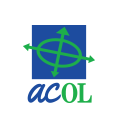PEI PPR News
 
News About the Personal Property Reform Project Welcome to the first edition of the PEI PPR News – the newsletter dedicated to informing you about the significant changes planned for the Personal Property Registry (PPR) for the Province of Prince Edward Island. The new Personal Property Security Act (PPSA) was passed by the House of Assembly in the spring of 1997. It will be proclaimed in early 1998 and become effective in the spring. This publication is issued to communicate information and events leading to the implementation of this legislation and the new supporting computerized registry system. The first of these events is the orientation seminars on January 20 and 21. Read on for the details. Agreement Signed On December 15, 1997 the Attorney General, P. Mitchell Murphy, signed an agreement with Unisys Canada Inc. to implement a new computerized province-wide Personal Property Registry system. "The new PPSA is a fundamental change to the way security agreements are registered for personal property," said Attorney General Mitchell Murphy. It will be consistent with the legislative framework of Nova Scotia, New Brunswick and other provinces throughout the country. "The reform of the Personal Property system is both a technology solution as well as an improvement in the legislation and business processes". The new registry is similar to the system which was implemented in Nova Scotia on November 3, 1997 and delivered through Atlantic Canada On-Line* (ACOL). Why Change the Personal Property Registry? The Department of Community Affairs and Attorney General is responsible for the Personal Property Registry and supporting legislation for the province. There are three county registry offices where documents are registered by secured parties who hold a financial interest in certain collateral. Under legislation, this registration provides protection to the secured party. Also, the registry provides information to any prospective client who is considering the purchase of the collateral to be informed of any secured interest in it. After consultation with the business community, it was understood that the system was less than effective. It became clear that a search against the registry files is only complete if the search is carried out in all registry offices. Access to the information is time consuming, restricted to paper documents, and limited to local registry offices during regular government office hours. These limitations resulted in low productivity, inefficient utilization of resources, reduced service levels, and risks to organizations and individuals in the province. Personal Property Security Act The Personal Property Security Act (PPSA) identifies the personal property registry as an electronic registry where notices of security interests in certain collateral should be registered to retain priority. Documents, such as Bill of Sales or Chattel Mortgages, will no longer be registered and filed at the courthouse. A representative of the Secured Party must enter the information into the system in a timely and accurate manner. Government staff will not be permitted to enter, search, or amend information on behalf of the clients. In addition to the dramatic effect the legislation will have on the current procedures, it will repeal the following acts:
Several other acts will be amended with this new law. Some of those acts include the Family Law Act, the Judgment and Execution Act and the Warehousemen’s Lien Act. Please refer to the PPSA for a complete list of acts affected by this new legislation. What is the new Personal Property Registry? The new Personal Property Registry (PPR) is a centralized computer registry service that extends throughout the Province of Prince Edward Island. The PPR allows both individuals and organizations to record their financial interest in personal property (cars, boats, appliances, etc.). For example, if you have a car loan with a financial institution, that car is the security for your loan. Until you have repaid the loan, the institution has a financial interest in that car. The PPR is the place to record that interest and make that information available to other interested individuals and organizations. The PEI PPR is a part of an Atlantic Personal Property Registry computer system which Unisys initiated with the introduction of the Nova Scotia PPR. This system will provide the capability to register and search notices of security interests in multiple provinces. PEI’s PPR is the second province to be formally added to the system. New Brunswick’s PPR is expected to be integrated in the first half of this year. Planning activities for Newfoundland’s PPR are in progress. What is needed to connect to the PPR? The exact details of this question will be answered over the next few months. Remote connection to the PPR service is available on-line from your home or business. New ACOL clients are required to complete an application with ACOL. Once received and authorized, your company is assigned a client account with user-IDs for those employees who you have identified within your company. Each personal computer used to access ACOL requires an official copy of the ACOL Desktop software installed. This software is available in Windows 3.1x or Windows 95 versions. Each user-ID allows access to the registry from any computer that has the ACOL Desktop software installed. Existing ACOL users are required to complete an agreement extending access privileges to the PEI PPR. There is a Software License fee of $200 plus applicable taxes for each copy of the software required. The only other fees are those regulatory fees which are outlined in the draft General Regulations which accompany the legislation. What is ACOL? ACOL is an on-line information service which provides access to government information throughout Atlantic Canada. This service is offered by Unisys Canada Inc. through a public/private partnership with the governments of New Brunswick, Newfoundland and Labrador, Nova Scotia, and Prince Edward Island. It is based on a multi-year contract which was signed by the four premiers on May 10, 1996. The first information service of ACOL is the Nova Scotia Personal Property Registry. ACOL will progressively provide for a single point of access for registrations and searches to the four Atlantic Personal Property Registries as each province brings their PPR system on-line. Planning for additional services beyond PPR is in progress. Benefits of the new PPR The new centralized PPR service improves access to personal property information resulting in the following benefits:
Orientation Seminars The project team will be holding four half-day orientation seminars. These will provide a brief overview of the new legislation, ACOL, the PPR, and an on-line demonstration of the system. The intended audience includes management, lawyers, administrators and practitioners who are involved with the existing personal property registry. The orientation sessions are as follows:
To reserve your place at the orientation seminar, please call the ACOL Client Support Centre at 1-888-624-2265. Live Date Announcement As you can appreciate, this is a complex project which requires a great deal of planning and consultation with our stakeholders. We expect to announce a live date in late January. However, for your planning purposes, we are targeting March or April. We will be in touch regularly over the next several months, and will be using this newsletter along with presentations and training sessions to keep you updated. In the meantime, if you have any questions, concerns, or are simply interested in what we're doing, please feel free to contact us. The starting point for queries should be with the Provincial Project Manager, Greg White, who can be reached as follows:
|







